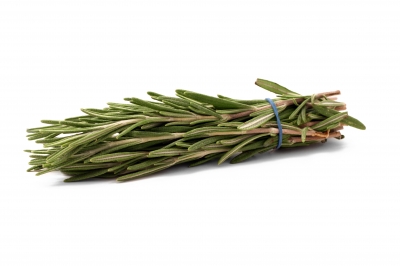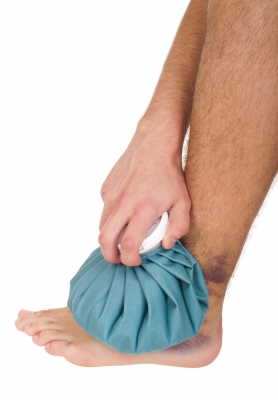3 Essential Oils to Relieve Sore Muscles of Summer
 It’s summer time and with beautiful sunny weather comes a lot of outside work, sports and, sometimes, overexertion. Whether it is from digging in our gardens or sliding into home plate, we all have tight and sore muscles from time to time. As soon as we feel a tight muscle or ache, we reach for ice or maybe even an over-the-counter pain reliever. But what about natural pain relievers that are not laden with all kinds of chemicals? Why not give mother nature’s pain relievers a try!
It’s summer time and with beautiful sunny weather comes a lot of outside work, sports and, sometimes, overexertion. Whether it is from digging in our gardens or sliding into home plate, we all have tight and sore muscles from time to time. As soon as we feel a tight muscle or ache, we reach for ice or maybe even an over-the-counter pain reliever. But what about natural pain relievers that are not laden with all kinds of chemicals? Why not give mother nature’s pain relievers a try!
The most common causes of muscle pain are tension, stress, overuse and minor injuries. When we over-exert ourselves, three things can happen: inflammation, pain and muscle spasms. Home treatment usually relieves muscle pain, inflammation and spasms from minor injuries, stress or exercise. Muscle pain from severe injuries or systemic disease is often serious and requires medical care.* Below are three essential oils that can be blended and diluted to ease all three symptoms.
Analgesic (Pain Relief)
Did you know that wintergreen essential oil contains 85-99% of methyl salicylate, the same component of aspirin? Wintergreen, and birch, are the only plants in the world that naturally contain methyl salicylate. It is documented that these oils have cortisone-like effects that can relieve pain quickly.
Botanical Name: Gaultheria Procumbens
Origin: China
Cautions: Avoid use if pregnant. Safety in young children, nursing women, or those with severe liver or kidney disease is not known.
Rosemary and its constituents especially caffeic acid derivatives such as rosmarinic acid have a therapeutic potential in treatment or prevention of spasmogenic disorders and inflammatory diseases, as stated by the US National Library of Medicine National Institutes of Health.
Botanical Name: Rosmarinus officinalis
Origin: Spain
Cautions: Rosemary Spanish Essential Oil is generally non-toxic and non-sensitizing. It is not suitable for people with epilepsy or high blood pressure. Avoid in pregnancy since it is an emmenagogue.
Anti-Inflammatory
In a Japanese study published in the January 2010 in the Journal of Lipid Research found that six essential oils reduce inflammation very effectively. In this study, it was found that the oils suppressed the COX-2 enzyme** by as much as 75 percent (Science News) One of these essential oils include eucalyptus oil. According to the US National Library of Medicine National Institutes of Health, Eucalyptus globulus possess central and peripheral analgesic effects as well as anti-inflammatory activities.
Botanical Name: Eucalyptus globulus
Origin: China
Cautions: Eucalyptus Oil should be used in dilution, and be avoided during pregnancy. It is considered toxic if taken internally, non-irritant and non-sensitive. Avoid if you have high blood pressure or epilepsy.
Muscle pain that occurs during an activity usually signals a “pulled” or strained muscle. These types of injuries usually respond well to R.I.C.E. therapy as well:
Rest. Take a break from your normal activities.
Ice. Place an ice pack or bag of frozen peas on the sore area for 15 to 20 minutes three times a day.
Compression. Use a compression bandage to reduce swelling.
Elevation. Elevate your foot to help reduce swelling.
Guide to Diluting Essential Oils
Undiluted use of essential oils on the skin can be harmful and potentially cause severe irritation or sensitization. Never put undiluted essential oils on your skin. According to AromaWeb using a 2% essential oil dilution is considered a safe guideline for topical application of essential oils on adults. For children or elderly, reduce the dilution down to 1%. With children, use only essential oils regarded as safe for children unless you have educated yourself very well on aromatherapy for children. To make a 2% dilution for an adult, add 12 drops of essential oil to each fl. ounce (30 ml) of cold pressed carrier oil (almond oil, safflower oil, etc.) or follow manufacturers directions.
*Seek medical attention for major injuries.
**Cyclooxygenase (COX) is an enzyme that is responsible for formation of important biological mediators called prostanoids. Inhibition of COX can provide relief from the symptoms of inflammation and pain. Non-steroidal anti-inflammatory drugs, such as aspirin and ibuprofen, exert their effects through inhibition of COX.
WARNING: The above statements are not intended to diagnose, treat or cure disease. Seek medical attention when required.



Thank you so much Louise! Posting factual, evidence-based information is very important to us. If you every have any questions, please just let us know!
Excellent! I love the fact that you add science to your explanation of what essential oils are good for. Your page, and this other page on essential oils that relieve muscle pain are the only ones I have found that mention or cite studies… Which makes me trust the information A LOT more! Thanks!